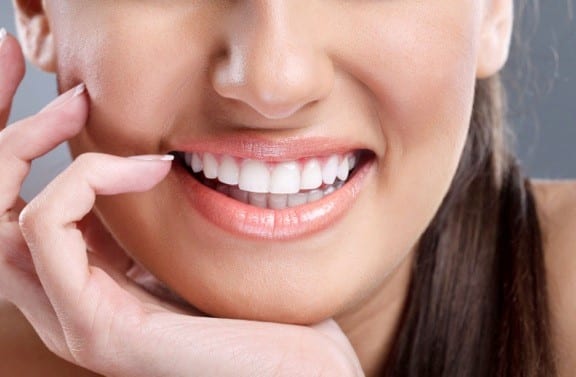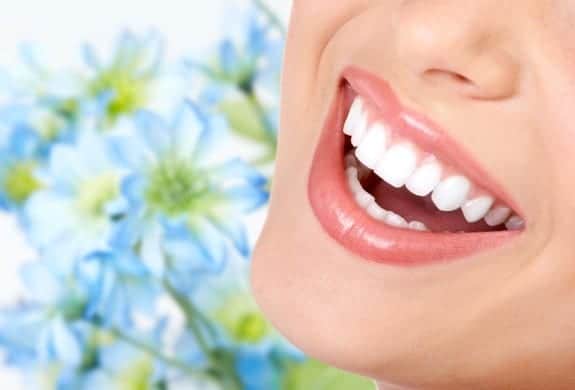
There’s nothing wrong with wanting whiter, brighter teeth – or with using teeth-whitening products. Many people feel that shiny white teeth make their smile look better. If you’re feeling better about how you look, it can make you happier and more confident.
That being said, no one should allow their teeth-whitening regimen to replace or take precedence over brushing, flossing, and making regular dental appointments. Simply put, while shiny teeth look great, a whiter smile does not mean that you have healthy teeth.
In fact, you can have completely healthy teeth without a bright, white smile because our natural smile is not necessarily white.
Just like skin or hair color, not everyone’s teeth look alike. In actually, healthy teeth can be a range of colors from yellow to white.
Your smile’s shade is going to be determined by a lot of different factors, including genetics, your diet, your age, and your oral care. If your teeth look darker than your neighbor’s, it doesn’t mean that they aren’t as healthy or that you have stains.
On the flip side, whitening products can actually hide underlying issues for teeth, and in some cases they even contain ingredients that can harm your teeth like bleach.
Bright Pearly Whites… But at What Cost?
It has long been known that some over-the-counter whitening products are causing permanent damage and eating away at the top layer of a tooth’s enamel. When the enamel is exposed, it is more susceptible to bacteria and puts you at a higher risk for cavities.
If you have a cracked tooth or cavity before you whiten, you run the risk of the chemicals in whitening products going deeper than intended, which can be very painful.
Unfortunately, you can’t always see this process happening, and it is quite common for people to have cavities without even knowing about them – especially in the back teeth.
Sensitivity and gum irritation are also common side effects of over-the-counter whitening.
So what should you do?
How to Maintain a Bright, Healthy Smile the Right Way

There are many natural ways to brighten your smile and prevent further staining. Consider the foods and drinks you are consuming. Red wine and coffee are more likely to stain your teeth, while apples and celery are recommended for keeping teeth clean during meals. Smoking also has a serious effect on the color of your teeth, as well as your overall health.
Maintaining good dental hygiene also helps. Leftover foods, drinks, and bacteria can eventually cause staining – so don’t leave them there. Brush at least twice a day. Rinse after every meal. Use a tongue scraper. Floss. Swish some mouthwash around. Every little bit helps.
If you do decide to engage in teeth whitening, consult with your dentist first. Many over-the-counter products are approved by the American Dental Association, but some will cause more damage than others. If you have fillings or crowns, you should use even more scrutiny when looking through whitening products. Whitening products typically don’t work on porcelain veneers or teeth.
Additionally, your dentist may offer in-office whitening procedures as part of the services they provide. Typically, these products and procedures are both stronger (which means they require less frequent applications) and more rigorously tested for safety and effectiveness. Whatever you decide, make sure you are armed with knowledge before you act.






